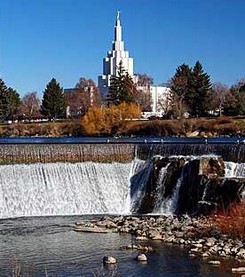 Idaho was the next-to-last state (before South Carolina in 2000) having an existing form of legal gambling made illegal on a statewide basis. Through the 1930s and 1940s slot machines were permitted under state law on a local option basis. In 1948, however, the voters decided that all the machines should cease operations.
Idaho was the next-to-last state (before South Carolina in 2000) having an existing form of legal gambling made illegal on a statewide basis. Through the 1930s and 1940s slot machines were permitted under state law on a local option basis. In 1948, however, the voters decided that all the machines should cease operations.
Since then, pari-mutuel gambling for thoroughbred, quarter horse, and dog races has been authorized, as has charitable gambling. A lottery began operations in 1991. Several tribes in the state offered high-stakes bingo games; however, they began serious negotiations for casino gambling in the early 1990s. The state refused to negotiate, using the 11th Amendment as a defense (the 11th Amendment bans suits against states in federal courts except in certain circumstances). The Coeur d’Alene tribe of northern Idaho decided to try something new. They instituted a nationwide lottery using telephone lines and the Internet. Considerable litigation ensued; however, the game was not sufficiently profitable, and the tribe dropped it. The tribe has installed nearly 500 machines at their gaming facility, claiming that the machines are lottery games. The state has objected to their presence, but there has been no concerted action to remove them.
|
|